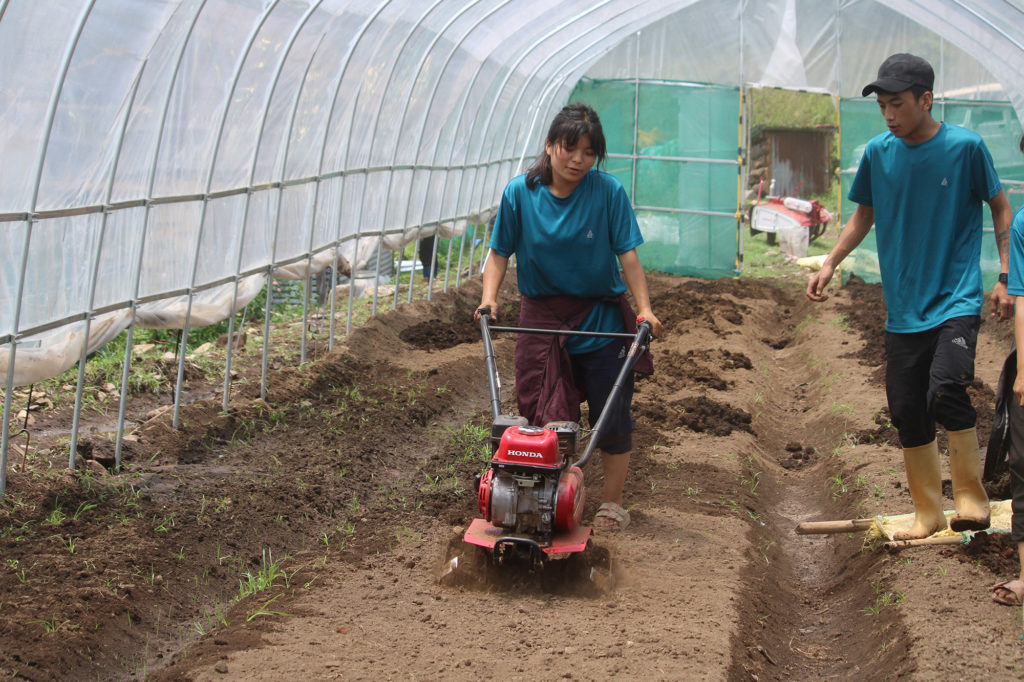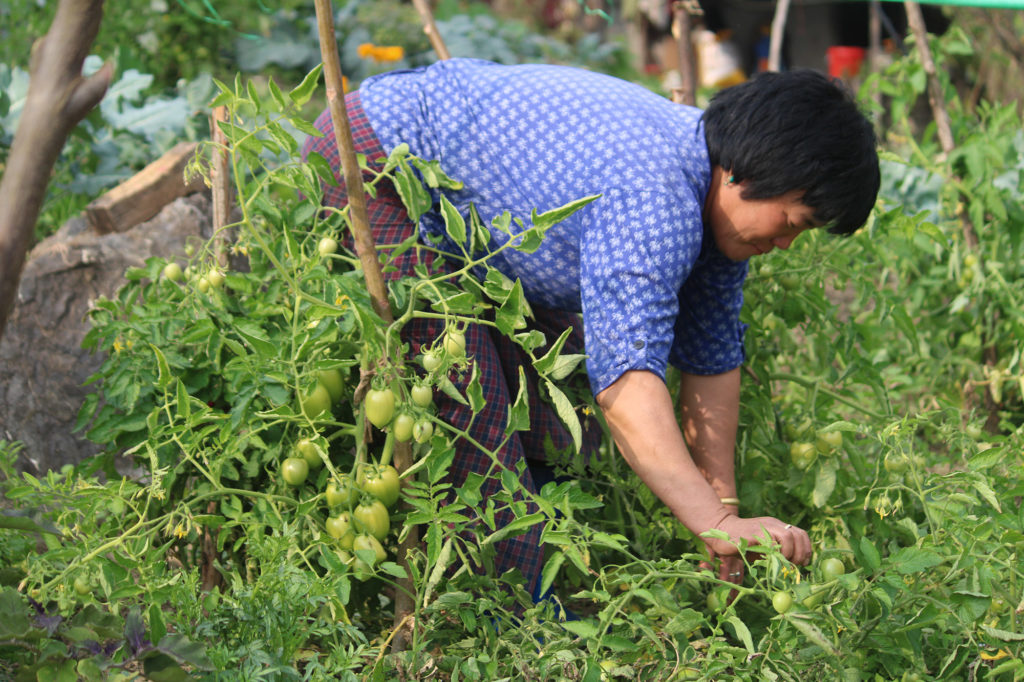November 19, 2021
After Bhutan closed its borders to the international community in March 2020, thousands of Bhutanese lost their jobs, including approximately 50,000 employees working in tourism and hospitality-driven services. For Ms. Pema Lhamo, however, who graduated right at the beginning of the pandemic, what could have been a story of loss became one of potential—all thanks to the Samdrup Jongkhar Initiative (SJI).
During the nationwide shutdowns, including when the international border remained closed to imports from India, SJI, with support from the Bhutan Foundation, created opportunities to explore the agricultural sector and worked with youth to support their communities to address issues around food supply.
“I learned various farming techniques and understood the role of the farming community in safeguarding our food supply systems—especially during the pandemic,” Pema said. After a year of engagement with SJI, she is now trained in organic farming techniques, including bio pest management. These skills could make a big difference in both pre- and post-pandemic Bhutan, where food security and youth unemployment are often recognized as pressing issues facing the nation.
These days, Pema is planning to take the skills she learned over the past year and move back to her village in Orong under the Sandrup Jongkhar district to start her own farming group. Her goal is to boost agriculture production for food self-sufficiency, create employment opportunities for unemployed youth, and offer substitutions to pricey imports.
Alongside this program, the Bhutan Foundation supported three other civil society organizations in helping to mitigate food shortages. With financial assistance from the US Agency for International Development, the program Strengthening Food Security and Employment in Response to the COVID-19 Pandemic in Bhutan supported one food processing unit and two community-based organizations.
The project is intended to complement the Royal Government of Bhutan’s effort in achieving food security and creating employment opportunities for the unemployed youth displaced from various sectors due to the global pandemic. To date, it has employed 814 individuals, developed 63 acres of farmland, trained 329 farmers on organic and sustainable agriculture, and provided appropriate farming equipment and tools worth more than BTN 5 million. Through these initiatives, farmers have harvested approximately 45,000 kg of vegetables during the pandemic and supplied them to more than 25,000 households.

